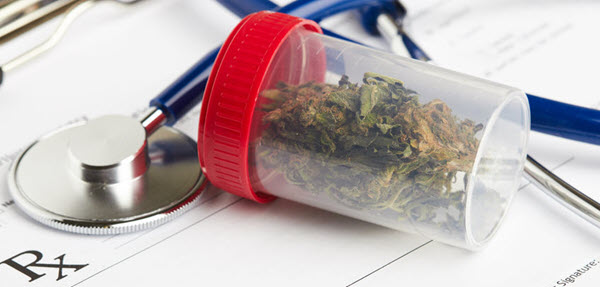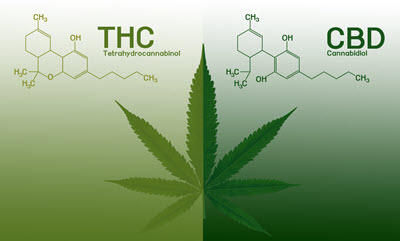
Question recently received via e-mail from a newsletter subscriber:
Joe, marijuana and medical marijuana seem to be rather confusing. There seems to be various compounds associated with marijuana and I’m not sure how to respond to clients interested in using it for medical purposes. I’m also getting questions about over-the- counter CBD oil for the management of anxiety. Would you consider addressing this in an upcoming newsletter?
This question is indeed a timely one as marijuana continues its inexorable march toward legalization in all 50 states for medical and even recreational use. Medical marijuana – which I’ll address below – is currently legal with a prescription in 33 states and the District of Columbia. Here goes:
Overview
Debate abounds as to the historical tenets of the word “marijuana” which is beyond the scope of this article. I believe we’d all be better off not using the term marijuana at all as mental health professionals, but of course, that’s not going to happen. The accurate term for what is referred to as marijuana is “cannabis,” which in turn refers to the cannabis sativa and cannabis indica plants themselves. Both the medicinal and recreational properties of cannabis emanate from the dried flowers (or buds) and leaves of these plants. Cannabis is most commonly smoked, but is also readily available nowadays in tea concoctions, edibles such as brownies, candies and cookies and through vaporizer use.
THC (tetrahydrocannabinol)
 Cannabis is a blend of over 100 cannabinoids – which are found in the actual plants themselves – and are responsible for the medicinal and psychoactive effects associated with cannabis. The two most prominent of these are THC and CBD – which I’ll discuss next. THC is simply the cannabinoid responsible for the euphoric effects or “high” derived from using cannabis. THC is linked to cognitive impairment, particularly in adolescents (adverse effects on IQ) as well as amotivational syndrome, judgment and perception problems. THC allegedly helps with pain conditions, muscle spasms and glaucoma, to name a few.
Cannabis is a blend of over 100 cannabinoids – which are found in the actual plants themselves – and are responsible for the medicinal and psychoactive effects associated with cannabis. The two most prominent of these are THC and CBD – which I’ll discuss next. THC is simply the cannabinoid responsible for the euphoric effects or “high” derived from using cannabis. THC is linked to cognitive impairment, particularly in adolescents (adverse effects on IQ) as well as amotivational syndrome, judgment and perception problems. THC allegedly helps with pain conditions, muscle spasms and glaucoma, to name a few.
CBD (cannabidiol in oil form)
CBD is the next most prevalent cannabinoid and is found in hemp varieties of cannabis. It is void of any psychoactive effects in that it does not precipitate a “high” like THC does, although many users find it somewhat sedating. CBD also doesn’t cause some of the problems linked to THC – cognitive impairment, in particular. There are a couple of very small controlled trials addressing CBD’s efficacy in social anxiety disorder. Findings indicate that when compared to placebo, CBD had a demonstrative effect – reducing anxiety to the same levels reported in the healthy control group. Sleepiness is the most reported side effect of CBD. As an OTC product, CBD oil is legal in every state – as long as it is extracted from the hemp plant. Buyers beware: With regard to purity, CBD oil is a crap shoot. In a recent study, 84 online CBD oil products were assayed and only 30 percent contained the amount of CBD indicated on the label. Worth remembering when purchasing OTC drug products online: Less regulation (compared to prescription products) equals more lying.
Epidiolex (prescription CBD)
Whereas CBD oil is available as an over-the-counter product, Epidiolex is a prescription form of CBD oil. It is a Schedule V prescription drug – the lowest regulatory level for controlled substances. Epidiolex is FDA-approved for 2 rare types of epilepsy – Lennox-Gastaut and Dravet syndromes and was awarded FDA fast-track status for these epilepsies because of the acute need for treatment of previously uncontrollable seizures.
Cost
CBD – on prescription or OTC – doesn’t come cheap. A 300mg (per day) dose for anxiety runs 20-50 dollars per day for over-the-counter CBD and about 35 dollars per day for Epidiolex, when digging into your own pocket.
Marinol (dronabinol)
Marinol is a synthetic (laboratory generated) formulation of THC discussed above. As such, this drug is subject to tighter Federal regulation compared to CBD. Marinol is a Schedule III prescription drug. It is approved only as an anti-nausea agent in conjunction with chemotherapy and for treating AIDS-associated anorexia. Because it’s a pure THC drug, it possesses all of the euphoric and possible psychedelic effects associated with using cannabis discussed above.
Medical Marijuana
Medical marijuana, or as I would prefer to call it, medical cannabis, simply refers to any cannabis component, such as THC, CBD or to the plant itself. Each state has its own list of requirements, specifications for use and regulatory mandates that must be adhered to by doctors, users, dispensaries and even growers.
My View
Each succeeding election cycle will have more states signing on to approving cannabis for medical use. Once all 50 states are in lockstep on this issue, which will happen, the next push will be to gain recreational approval. Recreational approval on a state level will be hamstrung by many factors, but the ramifications of THC-containing products will be a stickler – particularly when (not if) adolescents get their hands on it. On the Federal level, recognizing cannabis as an accepted medical treatment for certain conditions and circumstances will remain stuck in the mud until the current opioid crisis is adequately resolved. Then and only then, will cracks in the door of approval appear.
Over-the-counter CBD oil has all the makings of a viable alternative for managing anxiety “pharmacologically” speaking, per my research. But I say again: Users will need relatively deep pockets and will need to remain aware that what the labeled contents say is one thing, while what they’re actually getting is another.
Attribution Statement:
Joe Wegmann is a licensed pharmacist & clinical social worker has presented psychopharmacology seminars to over 10,000 healthcare professionals in 46 states, and maintains an active psychotherapy practice specializing in the treatment of depression and anxiety. He is the author of Psychopharmacology: Straight Talk on Mental Health Medications, published by PESI, Inc.
To learn more about Joe’s programs, visit the Programs section of this website or contribute a question for Joe to answer in a future article: joe@thepharmatherapist.com.